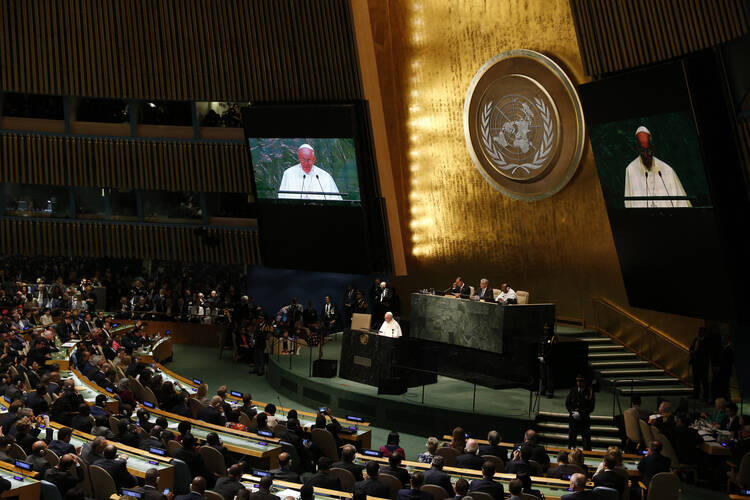More than 30 European Catholic justice and peace commissions have pledged their support of the U.N. Sustainable Development Goals and said they were grateful Pope Francis called the goals an "important sign of hope."
The group said the pope's Sept. 25 address to the U.N. General Assembly was akin to a "Catholic pledge" to reduce world poverty, hunger and disease and said they would encourage European member organizations to do all they can to implement the Sustainable Development Goals.
With 17 goals and 169 targets, there can be a lack of priorities, the group said in a Sept. 27 statement, which said the commissions would focus, as the pope stressed, on issues surrounding the right to life and "the right to existence of human nature."
Funding, they said, is the most critical issue for reaching these goals by the 2030 deadline. They also said the task of implementing these goals will be "complex and complicated" on both the national and international level and will also require reorganization within the United Nations.
To successfully meet these goals will require "sustained efforts to communicate their contents and conception and active engagement of religious and civil society groups," the commissions said.
The group also pointed out that there is a rift among diplomats, nongovernmental activists and academia and the "less-informed average citizen," which the commissions said they would try to bridge.
Pope Francis addressed the U.N. the day before U.N. discussion of the 2030 Agenda for Sustainable Development.
He said the best way to measure the success of the new development goals would be how they give "effective, practical and immediate access, on the part of all, to essential material and spiritual goods: housing; dignified and properly remunerated employment; adequate food and drinking water; religious freedom and, more generally, spiritual freedom and education."
"These pillars of integral human development," Pope Francis said, "have a common foundation, which is the right to life and, more generally, what we could call the right to existence of human nature itself."








